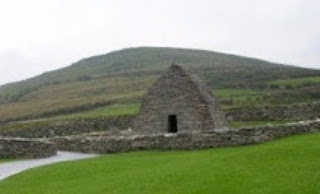Big Idea: Boaz showed kindness to Ruth though a mean spirit was the norm in his day which inspires us this Thanksgiving.
Kindness in Mean Times
This fall I’ve been studying the book of Judges in the Bible. It is a dark book where all the people did whatever seemed right in their own eyes. Judges 21:25 NLT
It shows lies and deception, abuse of women, betrayal and murder. It is hard to understand how God puts up with these people!
Those God speaks to, such as Gideon and Samson, are very imperfect. God’s patience with them is amazingly merciful.
Enter Boaz and Ruth
Ruth takes place in the time period of the book of Judges.
Ruth is a foreigner. During famine she lost her father-in-law and her husband. She unfathomably chose to move to Israel with her mother-in-law instead of going back home.
Why was that? She chose to stay with her mother-in-law who was bitter about everything!
One day Ruth the Moabite said to Naomi, “Let me go out into the harvest fields to pick up the stalks of grain left behind by anyone who is kind enough to let me do it.” Ruth 2:2 NLT
She went not as a hired worker but one grabbing little pieces of grain left behind.
The field she went to belonged to a wealthy landowner named Boaz. His visit to the fields tells their legendary encounter.
5 Then Boaz asked his foreman, “Who is that young woman over there? Who does she belong to?”
6 And the foreman replied, “She is the young woman from Moab who came back with Naomi. 7 She asked me this morning if she could gather grain behind the harvesters. She has been hard at work ever since, except for a few minutes’ rest in the shelter.”
8 Boaz went over and said to Ruth, “Listen, my daughter. Stay right here with us when you gather grain; don’t go to any other fields. Stay right behind the young women working in my field. 9 See which part of the field they are harvesting, and then follow them. I have warned the young men not to treat you roughly. And when you are thirsty, help yourself to the water they have drawn from the well.”
10 Ruth fell at his feet and thanked him warmly. “What have I done to deserve such kindness?” she asked. “I am only a foreigner.”
11 “Yes, I know,” Boaz replied. “But I also know about everything you have done for your mother-in-law since the death of your husband. I have heard how you left your father and mother and your own land to live here among complete strangers. 12 May the Lord, the God of Israel, under whose wings you have come to take refuge, reward you fully for what you have done.”
13 “I hope I continue to please you, sir,” she replied. “You have comforted me by speaking so kindly to me, even though I am not one of your workers.” Ruth 2:5-13 NLT
We can glean three thanksgiving lessons of kindness from Boaz.
Three Ways to Show Kindness This Thanksgiving
1. Greet everyone kindly.
At Thanksgiving someone could be of a vastly different background. Someone may have voted differently than the rest of the family. Maybe someone is just out of prison.
Boaz greeted his workers kindly (Ruth 2:4) and was kind to Ruth knowing she was a foreigner.
2. Show interest in another’s story
Engage with others at your Thanksgiving gathering. Learn people’s story by asking kind questions of interest, but not controversial in nature.
Learn something that makes someone tick who is vastly different from you. Learn something about the childhood or youth of an aging relative.
Boaz asked good questions about Ruth that helped him understand (Ruth 5:4-5,11 NLT).
3. Be kind and helpful
Showing kindness by helping someone might be as simple as:
- Taking the coat or carrying the plate for an aging or disabled person.
- Learn about someone’s issue that would be easy for you to do, and offer your help.
- If someone is struggling to make ends meet you can send extra food home with them.
- If someone’s car is on the fritz you might look at it together.
- Perhaps others are ganging up on someone in the family with bullying accusations and you can diffuse the conversation or divert it. Say something kind about them. Stand up to a bully.
Boaz told the guys not to mistreat Ruth (Ruth 2:9 NLT) and provided extra food for her anonymously (Ruth 2:15-16 NLT).
Glean lessons of kindness from this ancient story when everyone seemed self focused and selfish.
Boaz wasn’t. We can learn from him.
_________________
Previous post: How do other religious books compare to the Bible?
_________________
Reflect:
1. Is there someone usually at family gathering that you avoid? Who is it and why do you avoid that person?
2. Reflect now to be intentional giving a kind word or action toward that person when you see them. It does not have been a long conversation. It might be without words you are obviously kind.

















